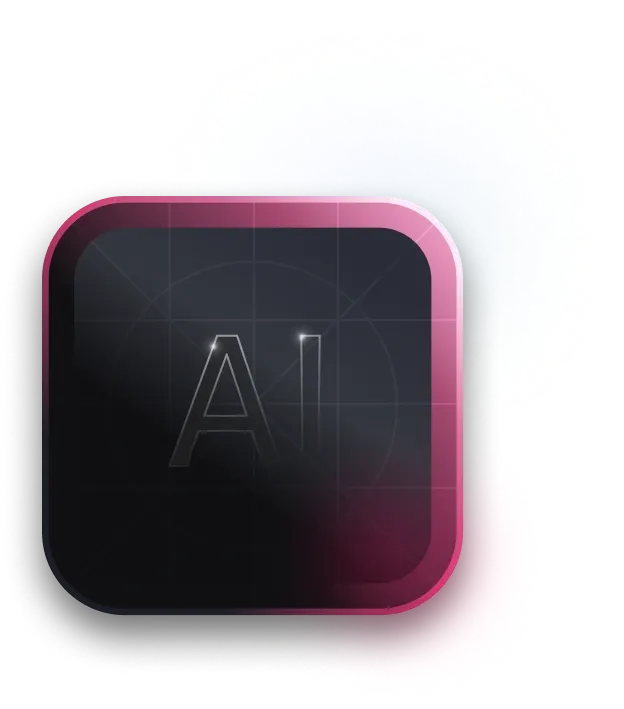The legal industry traditionally relies on human lawyers who have to draft, review, and finalize legal papers. With the advance of AI, we can consider a real paradigm shift in the way those documents are drafted. AI for writing legal documents offers some redefining benefits for both newbies and professionals in the legal field.
In particular, AI tech in the legal sphere comes more than handy for lawyers, helping achieve major cost cuts, efficiency boosts, contract workflow speed-ups, as well as human error and burnout risks elimination. Generative AI can assist legal professionals by providing a well-automated, reliable foundation for creating, processing, and storing legal documents.
But let’s dive into the topic and explore all the reasons and uses of adopting AI for legal document management.
Generative AI for Legal Writing: Why Is It a Thing to Prioritize?
Generative AI, as a branch of artificial intelligence focuses on content creation. Legal writing is a fundamental chunk of the lawyers’ work, which covers the production of legal documents such as contracts, legal notices, wills, deeds of sale, and many other papers. Extreme precision is required when drafting legal documents as even minor mistakes can have serious consequences.
Legal writing is often a tedious and time-consuming task, and legal professionals are constantly under pressure to produce high-quality documents under tight deadlines. According to McKinsey, about 23% of a lawyer's work can be automated. Law firms understand this and so they strive to adopt AI for legal documents to automate repetitive tasks, get work done faster, and save big.
While traditional, simplified AI answers queries and performs pinpointed tasks, generative AI is tuned to autonomously generate text, music, and other forms of content. More than that, it is capable of producing texts that are coherent, contextually relevant, and, in many cases, indistinguishable from what a human being might write.
All in all, some of the ultimate advantages of generative AI for lawyers include but are not limited to:
Time and effort savings
Generative AI-assisted legal drafting saves tons of time and effort. Lawyers and jurists no longer need to manually draft each clause and paragraph of a contract or legal opinion. Instead, they can use AI models to quickly generate basic documents, which they can then customize based on their client’s unique needs. This enables specialists to handle more complex tasks without trying hard.
Reduction of human errors
Even the most experienced lawyers might be wrong and human errors can happen. While info provided by AI should always be checked, generative AI can handle strict and formal aspects of legal documents particularly well, producing error-free legal text. Working in a templated nature, it can deliver formal documents with slight changes in the content consistently.
Discover the potential of LLMs in business operations
Uniformity and compliance
If you don’t need to squeeze anything creative out of it, AI-generated documents come out consistent and standard-compliant, helping minimize poorly drafted or misinterpreted clauses. Generative AI makes sure all necessary terms, definitions, and references are in place. Previously generated papers can be easily reused, with slight corrections and changes here and there.
Personalization
Although AI can generate basic documents, it also offers the possibility of more in-depth personalization afterward. Lawyers and legal professionals can add specific details to each document to meet the unique needs of their clients. This means that generative AI does not eliminate the role of human expertise, but complements it with a good outline and foundation for further ideation.
Generative AI for Drafting Legal Documents: Practical Applications
Generative AI is reimagining legal drafting with a real express boost of quality, efficiency, and precision in legal paper generation and management. It helps legal professionals save time, cut out human errors, maintain compliance, and customize formal assets.
Lawyers, legal professionals, and persons who are simply interested in legal business may also uncover lots of valuable insights for better understanding their line of work when using generative AI in legal document drafting.
But what about some real-world applications? Generative AI can be used in numerous aspects of legal writing, including:
Assisting in legal training
The integration of generative AI can streamline many angles of legal education. Law students can use AI-enabled systems to learn how to draft legal papers. This reinforces their practical learning by exposing them to real examples of different documents. In this way, AI acts as a valuable boost to traditional legal education, where students are not only preparing for legal practice but also adopting innovative technologies.
Our AI and Data Science Case Studies

Drafting agreements
Contract drafting is one of the primary areas that has been successfully automated by generative AI. As already mentioned, lawyers can use templates and customize them to come up with uniquely shuffled papers that fit the given legal purpose just right. The whole process of drafting agreements can be sped up dramatically.
Writing legal opinions
Legal opinions, which are often necessary to provide legal advice to a client, can also be generated in part by AI. An AI legal writer can enter details of a specific case and generative AI produces an initial legal opinion that the lawyer can then refine.
Making wills and estate planning documents
Generative AI can help make sure wills and estate planning papers are written in a clear and legally compliant manner, minimizing the risks of disputes. These are particularly sensitive legal papers, and any error could bear expensive consequences for beneficiaries.
How to Develop an App for AI Legal Writing Step-by-Step
There are tons of readymade solutions that make lawyer’s work much more efficient available online. An app for lawyers is tuned to streamline workflow productivity and interactions within a legal team, as well as with clients. It may come in different shapes and sizes (a basic web or mobile app, a plugin, or a full-on system or platform).
However, it is always wiser to take the custom development route, adding just the features and capacities you need to a solution built from scratch. One crucial prerequisite you need is a reliable team of professionals to handle the whole tech part. And some basic know-how.
The step-by-step development process of such an app includes:
Step 1. Choosing a development team
At this stage, the professional development team takes on your project when it is still at the idea stage. The designers and software experts will help you formulate a development request, share experience from previous projects, estimate the cost of the work to be done, and take up the creation of your app until the final stage. The development is always focused on close client contact and collaboration.
Step 2. Selecting a platform
You already know that mobile apps are developed for the Android and iOS platforms. If you’re looking to save a budget, you can build one native app, maximizing its capacities and cutting out competition. However, we can help you save even more while covering both market niches with a hybrid app that boasts native-like performance and is available on both Android/iOS marketplaces.
Step 3. Creating UI/UX design
Entrusting the development of your legal app to the professional team, you get a full-on analysis of direct and niche competitors, indicating the most competitive visual solutions and features that will attract your target audience. Based on that, a UI/UX prototype of all the screens is created. In the end, you get a refined functional design appealing to future users of the app.
Step 4. Working on functionality
You should think about the necessary functions and features beforehand. At the start, you can limit yourself to only the most necessary functions. Building an MVP (a minimum viable product meant to demonstrate the core functionality of a project in action and see if it’s at all viable).
Extra features can be added on-demand afterward. Also, the 2020 Legal Trends Report shows that about 80% of lawyers have long started using cloud tech to store their documents. So don’t pass out on available cloud powers.
Let’s solve your business challenges with custom software
Step 5. Testing
Finally, the product is almost ready. Once the developers are done writing code and connecting third-party services (e.g., payment gateways, social media integrations, cloud plugins, etc.), the app can be tested and polished for release. The product is tested for bugs, flaws, and errors through a combination of automated/manual testing and quality assurance.
Step 6. Supporting and improving
At the post-release, the app still needs technical support. Developers should regularly update the app for upcoming versions of systems, process user feedback, and iterate changes to make the product better. Our team is, of course, ready to work on the project in the long term, helping you grow a market-defining MVP based on relevant TA (target audience) demands.
How We Can Help You to Build AI Tool for Legal Documents
At Requestum, we provide a full range of functional app development services for legal purposes with a focus on data security and confidentiality. You can order the development of the app, tool, or other custom solution for your needs.
The Requestum team helps develop the necessary software from design to final product. With our broad range of services and industry expertise in AI development, you will get an app based on the latest innovations.
А specialized legal app can help you:
- Set up a competitive law firm or individual legal services agency.
- Get immediate access to necessary information and quickly create all sorts of documents.
- Boost accessibility of legal services to existing and potential clients.
- Optimize workflows with hot reminders for appointments, application statuses, and court deadlines.
- Free up assistants from routine work, allowing employees to focus on urgent and high-priority tasks.
- Enable personal accounts that store client-unique personal data, request history, and contact information.
- Create client invoices for legal services and accept payments directly in-app without the help of third-party services.
Conclusion
AI can augment and streamline processes, but it cannot completely replace the expertise of human lawyers. Also, crucial discussions on intellectual property and copyright related to AI were initiated recently. The Requestum experts take all that into account during software development.
We build specialized software powered by AI, machine learning, and cloud technology that helps proficient lawyers optimize their practices, protect sensitive info, and stay ahead of competitors in our rapidly automating world. If you have any questions or thinking about using generative AI for drafting legal documents, feel free to contact us.

Our team is dedicated to delivering high-quality services and achieving results that exceed clients' expectations. Let’s discuss how we can help your business succeed.


SHARE: